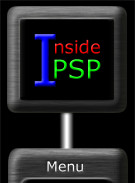 |
 |
 |
 |
Time Managementby Craig Lock
GET MORE FROM LIFE EACH DAY
Habits start as consciously made decisions, e.g., what time to get up. Once established, good habits become second nature. Success is the result of habit. It depends not so much on doing the unusual, but on doing the commonplace unusually well. DON'T PROCRASTINATE - DO IT NOW Don't confuse being busy with working efficiently -- activities can be tension-relieving, not goal achieving. By concentrating on fewer priorities regularly on a fixed schedule, you can achieve a lot more in less time. IS TIME THE PROBLEM OR ARE YOU? Draw up a daily "to do" list. Rank priority tasks (the important few), as well as the trivial many. This allows you to focus on fewer things and achieve more. Sort into A's, B's & C's:
Use this system to cover work, personal and family items. This allows you to strike a balance in your daily living. In addition, you can schedule the daily activities required to achieve your objectives. By giving high visibility to your major goal, you can keep your mental energies concentrated. Remember the 20/80 principle: 20% of your key activities will give you 80% of your results or payoff and 80% of your work (or clients) will produce 20% of your profits. Don't hog all the work. Delegate what you can, as this encourages a sense of responsibility and a sense of teamwork in others. It frees up your time for more important activities. Handle each piece of paper only once. Rather than shuffling paper, make a decision to deal with it *now* (if important), destroy, or put into a folder for later action. Use the concept of time blocks to do similar tasks at one time, rather than when they arise... otherwise, trivia will swamp what is important. Look at your body rhythms for which times suit you best. When do you work best (or when is your concentration at its maximum)? Are you most alert in the morning, afternoon or evening? Plan your day by your energy cycle. You can schedule the most important or mentally demanding activities when you are at your peak.
However, remember work is not everything. IT IS IMPORTANT TO TAKE TIME TO SMELL THE ROSES. TIME MANAGEMENT TIPS:
When you take control of time, you take control of your life. Author's Note: Craig Lock has written extensively on the subject of time management, as well as in the field of self help. This extract is from his first published book, Handbook for Survival in the Nineties (which has been updated and renamed How to Survive in the New Millennium). These books are available at: http://www.nzenterprise.com/writer/books.html Article courtesy of MediaPeak, http://mediapeak.com. |
||||
|
Copyright © 2000 John K. Hart, All Rights Reserved. |